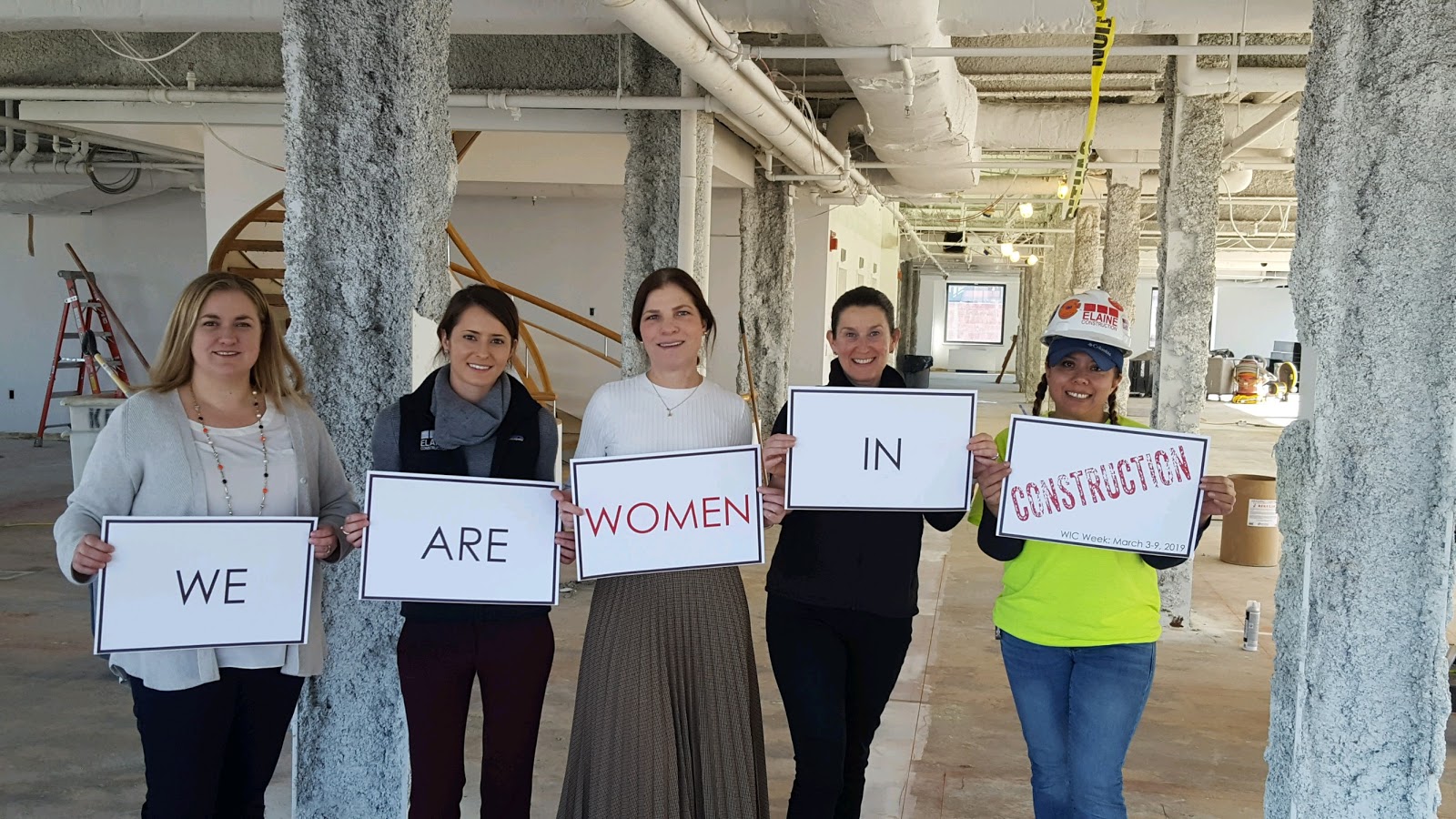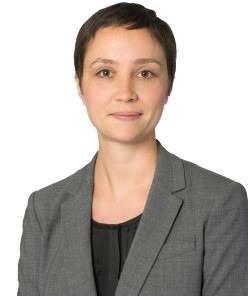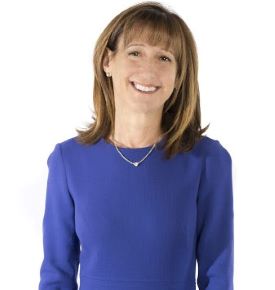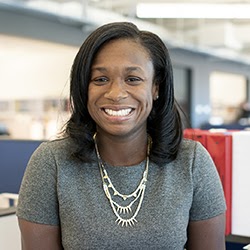Roots: Before we can plan for the future, we need to take a hard look at the past.

It's no secret that the AEC industry has historically been predominantly white and male-dominated, and shifting these demographics is no small task. However, after talking with employees across various firms and examining industry statistics, it's clear that gender ratios have been improving throughout the industry. Multiple interviewees even identified this trend as the "first wave" or "first progression" towards diversity in their workplace. Despite this progress, it's important to remember that increased numbers don't necessarily mean equity. The women who formed this wave have had to persevere in an already challenging industry with a work environment made more difficult by the struggles of not being taken seriously, gender-influenced criticism, and blatant sexism.
One striking example of these difficulties comes in Michelle Maheu's time serving as a volunteer on her town's influential planning board, responsible for parceling out land and approving site plans in a fast-growing community. Maheu is currently the Director for Designing, Planning, and Construction at Wellesley College, and has spent decades working in her chosen field. So when she joined the Norfolk Planning Board in 2012 as a way to volunteer in her community, she was one of the more experienced members among a group where some had little to no design or construction background.
She was however, the lone woman. While she is accustomed to this role from her professional experience, she suspected that it brought bias, and possibly disregard, from her male counterparts. Maheu recalled one instance when she raised an objection to using labor funded by town taxes on a new police building, which has a separate funding source. Her reasoning? "There's fiduciary laws against it." Somehow, that wasn't enough.
For Maheu the response she got was a wake up call-- her comments went completely ignored, making her feel cast aside. When the project continued as proposed, the Town got in "huge trouble because they went in way over their head... they bit off more than they could chew." Thinking back on the experience, she said that " No one ever said they weren't listening to me because I'm a woman, but the feeling of disregard became frequent," and after six years of service Maheu was finally fed up. Despite the people who pushed her to run again for the planning board position, she decided to step away and refocus her efforts on the less authoritative Design Review board instead. It was a disappointing end to Maheu's time on the planning board. Though she firmly believed in the "moral value [of giving] back to [her] community," volunteering for a group where she felt her opinions, despite her extensive experience, held little value or influence made it too difficult to continue. While Maheu sometimes contemplates rejoining, nothing is set, and the end result is a loss for the town of Norfolk.

In the workplace itself, women also run into pushback when asserting themselves and speaking their mind, in ways that don't happen or occur with far less frequency for men doing the exact same thing. Carrie Moore is a director at the architecture firm Skidmore, Owings and Merril (SOM), which worked on Wellesley College's Science Center renovation. She's been there now for over sixteen years, and over that time has become more comfortable speaking up and getting recognition for her work. However, it wasn't always easy to do so, coming from a generation " where you never complained, didn't speak up about things, including compensation." Having gone through these experiences, she has been glad to see the firm evolving into a more transparent environment, where employees can feel that their work is valued and can contribute and have a voice."
Despite these changes and increasing gender diversity in the field, Moore has continued to experience microaggressions even in her current leadership position. She gave one example of a meeting in which a man who was senior to her made a comment about her being "annoying" about getting things done. "And he said it as though it was a joke". But what he meant was you are just persistent about getting to the bottom of what the problem is and solving it and you won't let go of it until it's done. But he said "'annoying', I doubt he would say that to a man." Moore said she has learned to endure this behavior and brush it off as a defense mechanism, and admitted it can be difficult even now to speak up. " I think it's hard for me, it's rare that I've actually ever called anyone out on it, and I wish I did it more."

With regards to the traditional AEC industry, a few of our interviewees talked about the "boy's club," and the difficulties of breaking in and gaining respect. In Lisa Wexler's words, when she started it was "an old boy's network," and she wouldn't have had the opportunity to rise up to her current position if not for the family connection. That "current position" is the President of Elaine Construction, a business started by her grandfather in 1947. Wexler has grown up in this industry, starting with her family firm and now racking up over thirty years there. She talked about feeling like she had to prove herself and work twice as hard, being both a woman and more specifically the boss's daughter in a time where " there were two women [at the firm] and they answered the phone." Now, she has a support system consisting of the other women that have risen concurrently in various roles within the industry, who she can rely on for honest feedback and to act as a sounding board for the shared challenges they face.
Of course, the story is not so black and white as "men vs. women" or "good vs. bad"; there is a whole range of experiences out there. Criticism can come from anyone, regardless of gender or race/ethnicity. On the other hand, we heard examples of women feeling supported by their male colleagues and bosses throughout their working journey. Dene'e Braithwaite is a Senior Associate and Electrical Design Engineer at BR+A, a global engineering firm founded in Massachusetts. She's been working there for over a decade, and prides herself on always being direct with her coworkers " because once you're direct with somebody they know this is [your] limits and boundaries," and it's easier to maintain a respectful working relationship.

Braithwaite further shared that she always felt like she was being pushed forward to take on exciting projects and expand her capabilities. Her direct bosses "always told [her] one day we want you to be in our seats,'" and followed up those words with action. At the same time, in regards to diversity and inclusion initiatives, Braithwaite wishes "there could be more." Although she has been involved in planning bonding events for the women in her company, she noted that creating lasting change in the work environment requires a dedicated ongoing effort, and that is no easy task. This sentiment was repeated by representatives across all of the firms we talked to: SOM, BR+A, Turner Construction, and Haley and Aldrich (H&A). While progress has been made through this first wave of increasing gender diversity in the industry, these demographics are not reflected in the leadership level, and there are wide gaps when it comes to other forms of diversity such as race/ethnicity and LGBTQ+ identity.
For BIPOC in this industry, for instance, it is difficult or nearly impossible to find mentors to connect with that look like them and have shared cultural experiences. Even Elaine Construction, an industry standout as a woman-owned firm, has acknowledged that they have work to do when it comes to diversity outside of gender. We also talked to Cole Worthy, a Program Manager and Vice President at H&A, who shared that after becoming an LSP (Licensed Site Professional) he is "still currently the only person of color that is a LSP within the organization that has over 800 members and 500 licensed." In addition to his other duties, Worthy works with student outreach and diversity efforts and said that" the last two to three years, I want to say it gained more awareness which is great." At the same time, he is "a little frustrated that it's taken so long and different things that have happened in our society to bring that to the table to make it important to to understand that."
Worthy has progressed in the industry despite these experiences, but that doesn't negate the disheartening prospect of entering an organization of hundreds of people and not seeing a single person who looks like yourself. How many more minorities and people of color could be flourishing today, if increased mentorship and diversity had existed back then? We talked to people who had "made it,"so to speak, but what about those that dropped out of the pipeline?
We can't change the past, so let's take a look now at the present, and how things stand today.
Disclaimer: quotes have been edited for conciseness and clarity